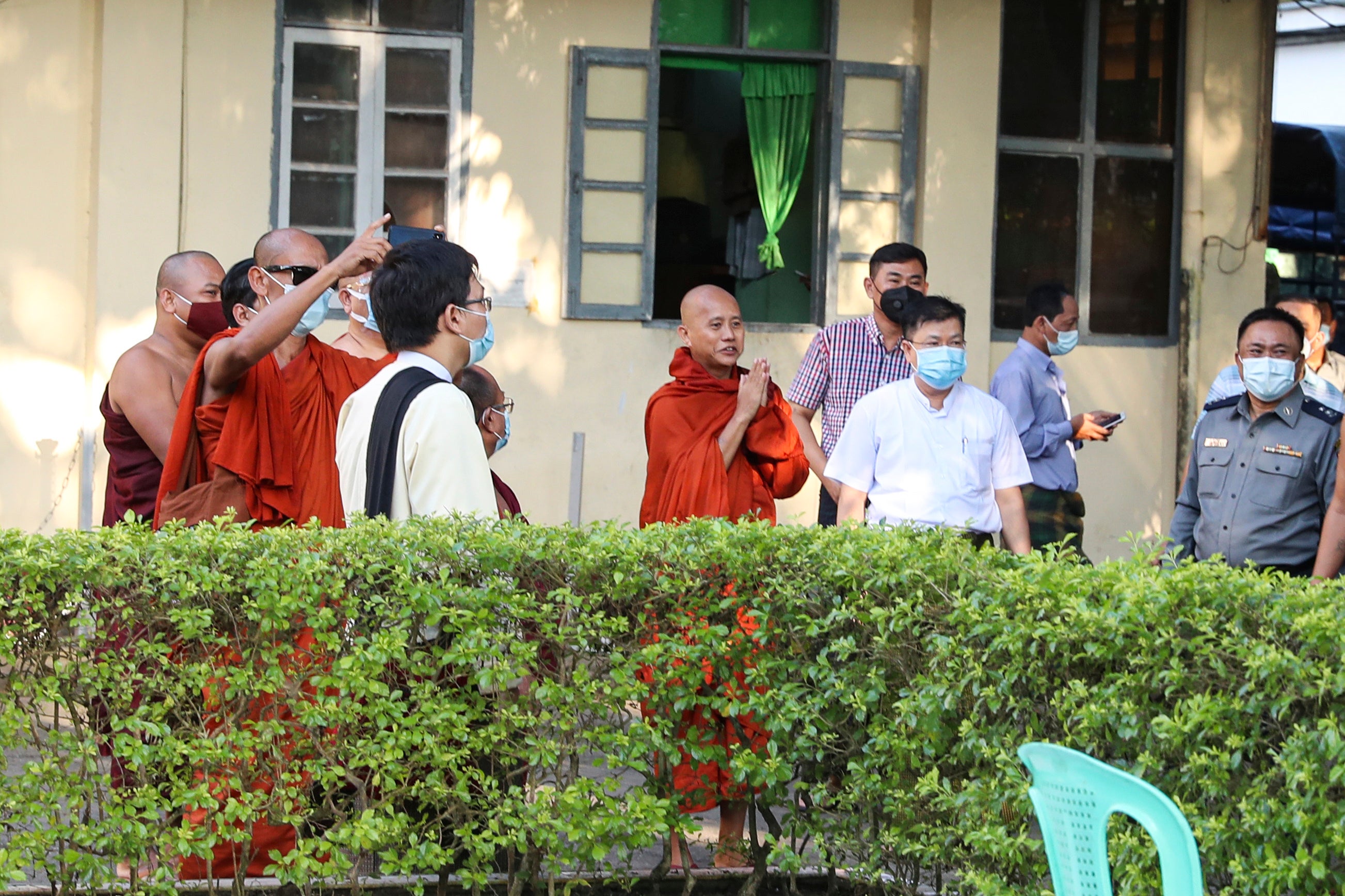Firebrand monk surrenders to police days before Myanmar vote
A nationalist Buddhist monk in Myanmar noted for his inflammatory rhetoric has surrendered to police, who have been seeking his arrest for over a year for insulting comments he made about the country’s leader, Aung San Suu Kyi

Your support helps us to tell the story
From reproductive rights to climate change to Big Tech, The Independent is on the ground when the story is developing. Whether it's investigating the financials of Elon Musk's pro-Trump PAC or producing our latest documentary, 'The A Word', which shines a light on the American women fighting for reproductive rights, we know how important it is to parse out the facts from the messaging.
At such a critical moment in US history, we need reporters on the ground. Your donation allows us to keep sending journalists to speak to both sides of the story.
The Independent is trusted by Americans across the entire political spectrum. And unlike many other quality news outlets, we choose not to lock Americans out of our reporting and analysis with paywalls. We believe quality journalism should be available to everyone, paid for by those who can afford it.
Your support makes all the difference.A nationalist Buddhist monk in Myanmar noted for inflammatory rhetoric surrendered on Monday to police, who have been seeking his arrest for over a year for insulting comments he made about the country’s leader, State Counsellor Aung San Suu Kyi
The surrender of the monk Wirathu came just days ahead of a general election on Sunday which Suu Kyi’s ruling National League for Democracy party is expected to win.
“Mainly, I would like to request my fellow monks around the country to ask their followers to vote for the parties that work to protect the country’s race and religion,” Wirathu said to a small crowd of followers outside the police station in Yangon before entering.
Wirathu and his supporters were successful in lobbying for laws making interfaith marriages difficult, but unsuccessfully endorsed the military-backed Union Solidarity and Development Party in the 2015 general election, which Suu Kyi’s party won in a landslide.
His appeal Monday was seen as another endorsement of the USDP, the main opposition party in parliament and the sole serious challenger to Suu Kyi’s NLD.
In May last year, a court issued an arrest warrant for Wirathu, charging him with sedition for insulting comments he made about Suu Kyi at a nationalist rally while comparing the military’s representatives in parliament to Buddha.
If found guilty, he could be sentenced to three years to life in prison. Under Myanmar law, he would have to be defrocked by Buddhist authorities before he could be arrested.
Wirathu became prominent in 2012 after deadly riots broke out between Buddhists and Muslims of the Rohingya ethnic minority in the western state of Rakhine. He founded a nationalist organization, since disbanded, that was accused of inciting violence against Muslims.
Muslims from other ethnic groups and in other areas also faced disrespect and occasional violence after Wirathu and his supporters launched their nationalist campaign.
Time Magazine called Wirathu “The Face of Buddhist Terror” in a cover story in 2013.
Wirathu was able to build upon widespread prejudice in Buddhist-majority Myanmar against the Rohingya Muslims, who are seen as having immigrated illegally from Bangladesh, even though many of their families have lived in Myanmar for generations.
In 2017, attacks by Rohingya militants on police posts triggered a brutal counterinsurgency campaign by the army that caused more than 700,000 Rohingya villagers to flee across the border to Bangladesh for safety.
Wirathu was accused of hate speech, and Facebook shuttered his account in 2018, but he managed to stay on other social networks and gave speeches around the country. The National Monks Council banned him from giving public talks for a year, but its action was not tightly enforced.